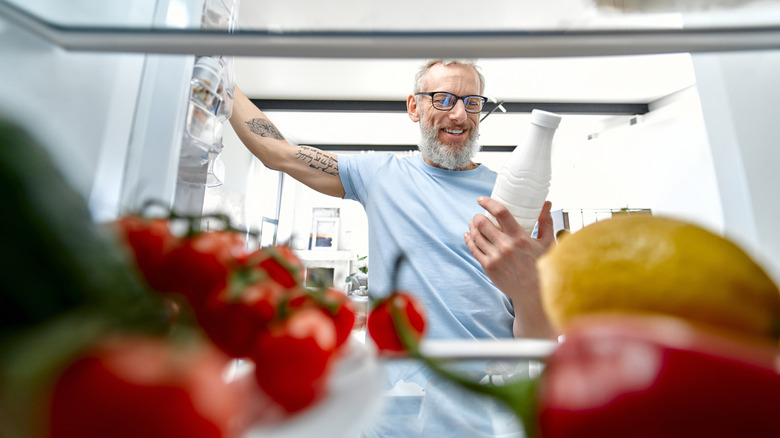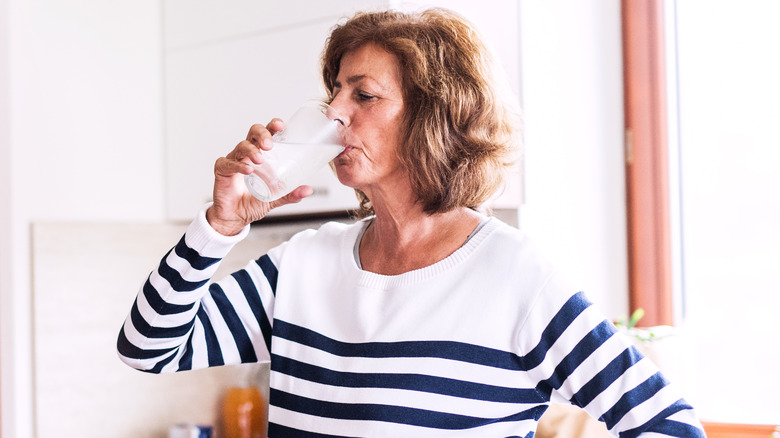Foods To Eat And Avoid Before A Colonoscopy, According To A Gastroenterologist
Using a long, pliable tube equipped with a small camera at the end, a doctor performs a colonoscopy by inserting the instrument into the patient's rectum in order to thoroughly examine the colon for abnormalities (via Mayo Clinic). In an exclusive interview, Health Digest spoke with Dr. Joseph J. Jennings, gastroenterologist at MedStar Health, who shared how patients can best prepare for the procedure in regards to diet.
"There are two phases to your diet before a colonoscopy," Dr. Jennings explains. "The week before your colonoscopy you should try to minimize/avoid foods that are high in fiber such as whole grains, raw vegetables, seeds/nuts/granola, etc.," he states. However, Dr. Jennings points out that this doesn't mean patients need to limit themselves exclusively to liquids or soft foods during this phase.
"You can still eat solid foods and an otherwise 'normal diet,' but minimizing fiber intake for the week leading up to the colonoscopy will help make sure you have the best bowel prep possible," Dr. Jennings says. "This is important because the cleaner the colon is, the better your gastroenterologist can find polyps and help prevent colon cancer."
Stick to liquids during phase two
"Phase two of the colonoscopy diet starts the day before your colonoscopy," Dr. Jennings goes on to tell Health Digest. "For that entire day, you have to be on a clear liquid diet. This means you can drink water, caffeinated beverages like tea and coffee without any dairy creamer/milk, sports drinks, and juices that do not contain any solid components of the fruit." Offering an example, he states that a patient could drink apple juice, but not orange juice containing pulp.
Dr. Jennings states that soup broth is also fair game, as long as it's void of noodles, meats, or veggies. The same is true for gelatin. Even in solid form, he explains that it still counts as a clear liquid.
"The goal of the day is to keep yourself well-hydrated but avoid any solid foods that will make the bowel-cleaning process less successful," Dr. Jennings emphasizes. "On the day of your colonoscopy, you cannot have anything to eat or drink until your procedure is completed."
Concluding the interview, Dr. Jennings explains that patients can promptly resume eating regular foods following the procedure. "Once the colonoscopy is completed, the patient can return to their normal diet that day, though we often advise that they start with a small meal since they have been on a type of liquid fast for the last 24-36 hours depending on when they had their procedure done."


